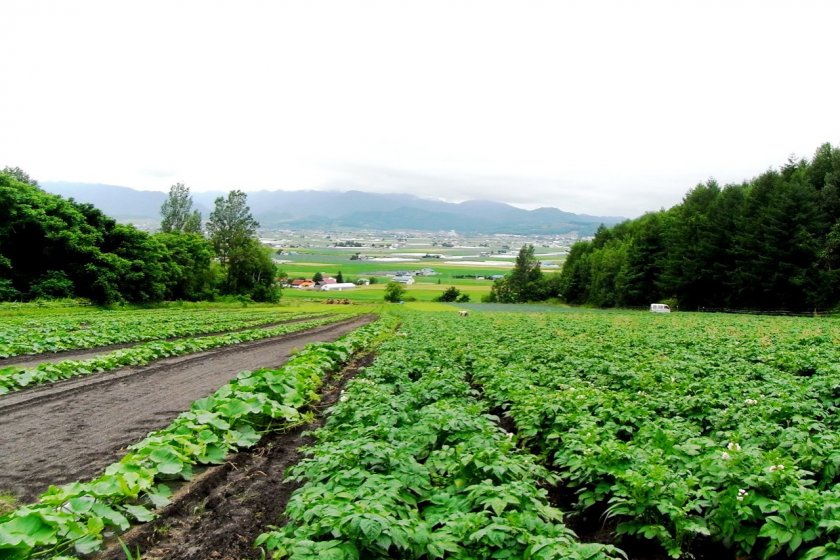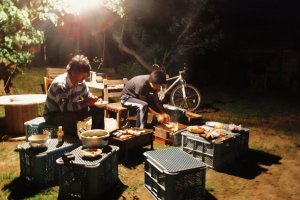A few years ago, I saw a program on 'slow life' and people across Japan who decided to farm rather than just living in the city. That spurred me to find out more about organic farming and chanced upon WWOOF. It stands for "World Wide Opportunities on Organic Farms, or Willing Workers on Organic Farms" and there is a separate site just for Japanese WWOOF hosts.
I was intrigued and decided to apply. It was more of an exchange system for farmers to get volunteers and for foreigners to experience living like a local.
It was fun viewing the different hosts available as it wasn't limited to just farms. Some hosts ran pensions or are food producers. Hosts are located all over Japan from Hokkaido to Kagoshima. The application process is rather simple too:
- Sign-up and pay for the annual membership.
- Fill in a bio page and additional information on what you would like to do, etc.
- Write in to them, tell them when you're available and how long you intend to be there.
It may take a couple of email exchanges if they are interested and then a decision is made.
It helps if you can speak/write Japanese even if it's basic as it helps them to decide if they are able to communicate with you. I was soon accepted at 2 farms. An organic farm in Furano and a fruit farm in Yamanashi.
Furano Organic Farm
I loved the experience at this farm. I worked 6 hours daily for 6 days and got 1 day off. If you are like me, a person who has never been to a farm before, you will likely enjoy the work.
Pulling weeds from the potato patches, separating the pumpkin vines, re-planting baby carrots, harvesting garlic, cleaning out the chicken coop (which was a big big barn) and even shearing sheep. I enjoyed every single task I was asked to do. I even negotiated to start work earlier so I could have an earlier afternoon off to wander around. They had a 'Mamachari' bicycle that I could use so I cycled around to view the flowers and neighbouring farms.
The head of the farm was a person who wanted to meet people from all over the world hence he enjoyed being a host. He took time to talk to me and asked if there was anything else I wanted to do while I was there and went out of the way to bring me to Tomamu to visit Tadao Ando's 'chapel on the water'. They even brought me to the Onsen up in the mountains and also brought me out to eat sushi.
The owners of the farm had a couple of volunteers before me and they shared their horror stories that resulted in them deciding that volunteers will cook their own food instead and stay separately from the family. But they provided all the ingredients for us to make our own meals. And I had access to the freshest eggs and delicious vegetables right out of the field and I could buy meat and any other ingredients from the supermarket. They were such kind hosts and it was rather easy for me to get attached to them so much so, it was a rather teary farewell. I've kept in touch with them thereafter as well.
Yamanashi Fruit Farm
It was a completely different experience from the first farm. This farm was ran by a bigger family. The head of the family was an university professor and left the day to day running his other family members. I stayed at the main house and had my meals with the family daily. There were other volunteers so we did the work together. This farm only had peaches, plums and grapes so there was a lot less variety of things to do. But it was still a lot of fun. They gave me two big box of peaches at the end of my stay which I shared with my friends in Tokyo and even sent a box home.
For anyone who is interested, please know that you have to be responsible as well and do the work you are asked to. Perhaps a little tip – I picked the places based on the season so it allows me to visit the nearby attractions with less burden on my purse. It was a wonderful experience and I'm itching for another chance to do this.


































